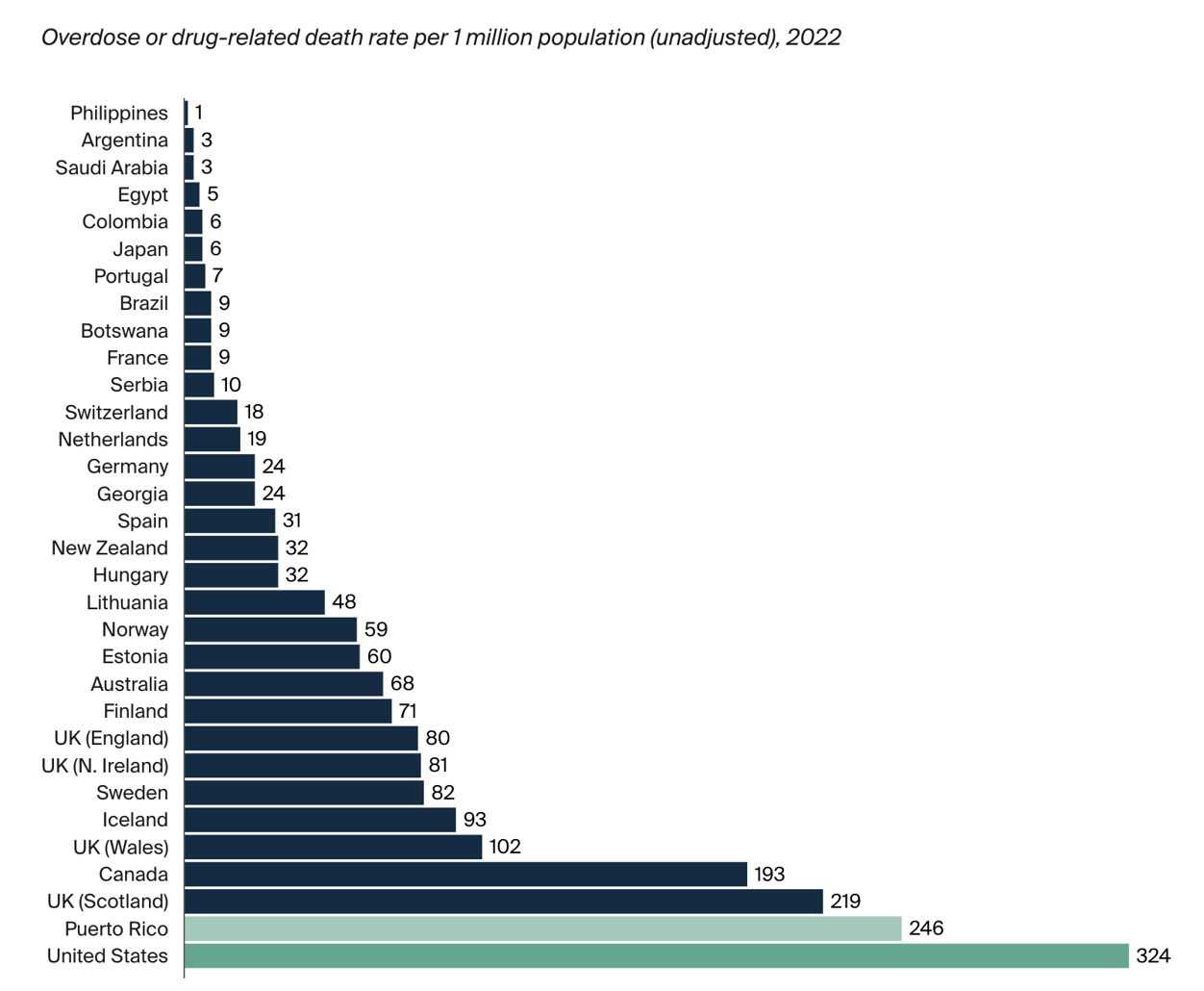global health
U.S. overdose rates are worst in the world

Commonwealth Fund
After years of a building crisis, overdose deaths dropped substantially in the U.S. last year. In November, the country was on pace for its first year with fewer than 100,000 overdose deaths since 2020. STAT's Lev Facher described it as a "powerful, if bleak, symbolic milestone."
A new report from the Commonwealth Fund shows just how much work is left to do. In 2022, about 108,000 people in the U.S. died from an overdose. At 324 deaths per million people in the population, that's more than 1.5 times the rate of deaths in Scotland.
One of the biggest problems in the U.S. is a lack of access to effective and affordable medications like methadone and buprenorphine. Previous research from the Commonwealth Fund found that only 11% of Americans with opioid use disorder receive these medications, compared to 87% in France, 86% in Norway, and 51% in Scotland. (If you haven't read Lev's War on Recovery series, about America's systemic failures to support people with addictions, I highly recommend it.)
public health
Food waste is increasing — and so is food insecurity
Here in the U.S., we generate more food waste than virtually any other country on earth. (Anyone sensing a pattern?) Ten years ago, the USDA and EPA set a goal to reduce this waste 50% by the year 2030. But food waste has actually increased since then. And a study analyzing existing state policies published today in Nature Food shows that it's likely no state can meet that goal without further interventions at state and federal levels.
Food waste occurs at stores, restaurants, and in homes. It's bad for the environment, but there are also more immediate stakes. In 2023, 13.5% of U.S. households faced food insecurity — a significant increase from 12.8% in 2022, according to recent USDA data. Redirecting food that's wasted toward people who aren't getting the food they need to be healthy and maintain well-being should be a key strategy to reduce waste, say researchers at UC Davis — ahead of composting, recycling, and directing waste toward animal feed.
Companies have argued that food processing reduces waste, but it also creates it. President-elect Donald Trump will lead the country for most of the remaining years between now and 2030. Robert F. Kennedy Jr., his presumptive nominee to lead HHS and champion of the "Make America Healthy Again" movement, has a lot to say about food companies, ultra-processed food, and public health. While running for president himself early last year, he pledged broadly to address food insecurity. But he hasn't spoken on food waste.
first opinion
Doctors don't know how to address eating disorders
Can you identify what the following patients might have in common? A young woman whose partner found her unresponsive after vomiting, an adolescent boy training for his school's track team and not meeting growth targets, a man prescribed a weight loss medication who now isolates himself due to strict food rules.
Experts know that these people are all showing signs of a potential eating disorder. But most medical professionals get little or no training in these conditions. They might not consider the diagnosis or be unsure of how to ask about certain behaviors or patterns. In many fields of medicine including eating disorder treatment, fatphobia and weight stigma are still a big problem.
In a new First Opinion essay, two Columbia University physicians focused on eating disorders argue that creativity, humility, and fortitude are necessary to fix this life-threatening knowledge gap. Read more.


No comments